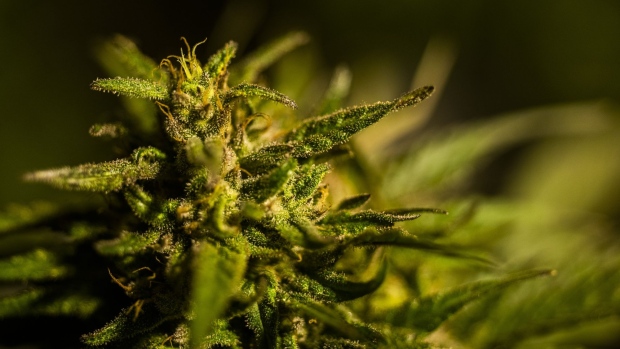Mar 31, 2021
Cuomo signs N.Y. pot bill, with sales due as soon as 2022
, Bloomberg News

New York is set to become the nation’s second-largest legal marijuana market after Gov. Andrew Cuomo on Wednesday signed legislation allowing the licensing of dispensaries.
Cannabis storefronts will be allowed to open as soon as next year under the measure (S.854A/A.1248A), which the Legislature cleared on Tuesday.
New York is the 16th state to decide to let adults use cannabis, though marijuana stores probably won’t open in New Jersey until next year, and South Dakota’s law is under appeal. New Mexico’s legislature is on track to pass its bill this week. Under New York’s law adults age 21 and older would be allowed to purchase and consume cannabis.
“This is a historic day in New York - one that rights the wrongs of the past by putting an end to harsh prison sentences, embraces an industry that will grow the Empire State’s economy, and prioritizes marginalized communities so those that have suffered the most will be the first to reap the benefits,” Cuomo said in a statement.
Once fully rolled out, New York’s program is anticipated to generate tens of thousands of jobs and about US$4.2 billion in sales, trailing only California, which had about US$4.4 billion in sales last year.
Cities, towns, and villages would have until the end of this year to opt out from having dispensaries and pot cafes in their communities.
The stroke of Cuomo’s pen sets in motion automatic expungement of records for people with previous cannabis-related convictions for activities that are no longer criminalized.
The bill’s passage was applauded by cannabis companies and civil liberties groups.
“At long last, New York will ensure a diverse and inclusive legal marijuana industry and reinvest in the communities of color that have been devastated by the war on drugs, mass incarceration and a legacy of disproportionate arrests for drug possession,” New York Civil Liberties Union Executive Director Donna Lieberman said in a statement.
Next Steps
Cuomo and legislative leaders next will focus on hiring staff for a state Cannabis Control Board and Office of Cannabis Management to set regulations for everything from cultivation at home to licensing.
The legislation limits the number of licenses for large corporations, and imposes sales and excise taxes that are estimated to eventually bring in about US$350 million a year.
Money raised through a 13 per cent sales tax would be divided between the state (9 per cent) and localities (4 per cent). Distributors will collect an additional excise tax of as much as 3 cents per milligram of THC, the active ingredient in cannabis, using a sliding scale based on the type of product and its potency.
Tax revenue will be used to run and oversee the state cannabis program, with the remaining money divided between programs that try to help people rebuild their lives after marijuana possession arrests, aid for their neighborhoods, education, and drug treatment.
Some trade organizations, as well as parent groups and the New York State Catholic Conference condemned the bill’s passage.
“The passage of legislation to legalize possession and consumption of marijuana for recreational use in New York State is terrible policy that sends a message to children that marijuana is harmless fun endorsed by the state. The reality is quite different,” Dennis Poust, the conference’s interim executive director of the state said in a news release. “The lure of money should never overcome what is best for society, especially children. Sadly, today that is what has occurred in Albany.”
Licensing Limits
The legislation sets a goal of allocating half of the adult-use licenses to a minority- or woman-owned business, distressed farmers, service-disabled veterans, or “social and economic equity” applicants from communities disproportionately impacted when marijuana was illegal.
A single company won’t be allowed to handle all parts of a recreational transaction — cultivation, processing, distributing, and dispensing — with the exception of micro businesses. A cultivator or processor will be barred from having a direct or indirect financial interest in a retail dispensary.
Medical marijuana companies that already have a license in New York could have a slight advantage over newcomers. There are 10, five of which are among the U.S.’s largest multi-state operators; Acreage Holdings, Columbia Care, Cresco Labs, Curaleaf, and Green Thumb Industries.
Adult-use cannabis can be sold at only three of a medical operator’s dispensaries, but they will be allowed to sell their own products at other retail dispensaries. Medical operators can also obtain a license to distribute, cultivate, and process cannabis, but they will only be allowed to distribute their own products.
Vireo Health, one of the state’s original registered medical marijuana companies, called on state lawmakers to continue to support the medical program. “We recognize that New York’s recreational program will take time to develop and implement,” Dr. Stephen Dahmer, chief medical officer for Vireo Health said in a statement. “ It is therefore imperative that New York also continue to grow and improve the state’s medical cannabis program as well.”
Including the existing medical cannabis providers will help quickly bring adult-use products to market, according to the New York Medical Cannabis Industry Association.
“By including medical cannabis providers in the earliest stages of the adult-use market, the state will not only expedite the creation of critical jobs, tax revenue and equity funding, but will also benefit medical cannabis patients by improving access to and affordability of the products on which they rely,” according to a statement from the association.





